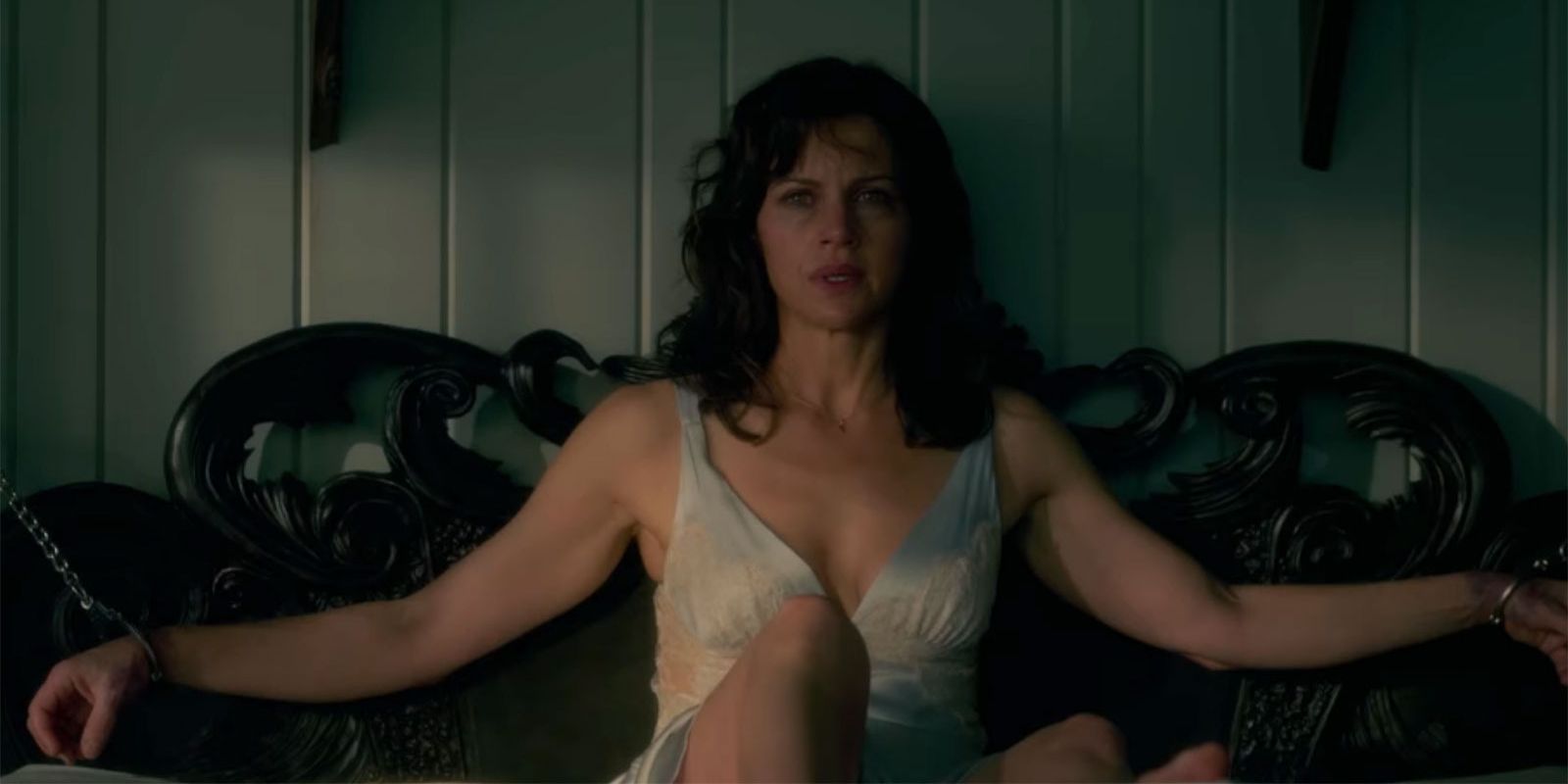The Netflix adaptation of King's novel Gerald's Game features a number of well-placed Easter eggs reminding audiences that, although the story may have been moved to the screen, it still belongs deep within the pages of King's work.
The Stephen King literary universe exists as its own delightfully dark, continuously complex and endlessly entertaining world. For nearly fifty years, King has been building up the walls of his world, crafting characters and narratives that overlap and intertwine in seamlessly subtle ways and when noticed, the clues themselves become stepping stones through his stories. When it comes to a Stephen King Easter egg hunt, one must know what exactly they are searching for. Director Mike Flanagan approaches his adaptation with a smart, stylistic hand and successfully maintains the tense tone of the novel as he visualizes the dreadful events.
Gerald's Game is centered around Jessie, powerfully portrayed by Carla Gugino, as she attempts to free herself from the bedpost she remains handcuffed to after a venture in bondage goes awry, leaving her husband dead and her trapped. Over the course of what quickly becomes a treacherous evening, Jessie is guided by her own thoughts, conjuring the voices and advice of imaginary versions of herself and her husband Gerald. A condescending and belittling Gerald meets his match in Jessie's cool, collected mental avatar and the two duel it out, their verbal back and forth igniting the real Jessie's effective yet excruciating escape plan. As she attempts to free herself from her confines, her experiences and visions call to mind several of King's past works.
Gerald's Game Stephen King Universe Easter Eggs
Of the several Easter eggs hidden within Flanagan's film the references to King's novel Dolores Claiborne are perhaps the most glaring. Thematically and visually, Gerald's Game and Dolores Claiborne are intertwined through the presence of an eclipse. In the midst of Jessie's turmoil she experiences detailed flashbacks to a Fourth of July weekend spent at a lake house with her family, revealing Jessie was sexually abused by her father during an eclipse. Traumatized by the event and warned by her father not to speak of it, Jessie repressed the memory and allowed the eclipse to overshadow thoughts of the assault. In Dolores Claiborne, the titular character confesses that she murdered her husband, who was sexually abusing their teenage daughter, by maneuvering his fall into a well on the day of an eclipse.
In the two novels, Jessie and Dolores have parallel visions of one another: Jessie dreams of a woman standing over a well and Dolores seeing a young girl being abused by her father. Careful watchers and readers will notice that in both plots the eclipse takes place in July of 1963. At the start of the film, Jessie and Gerald encounter a stray dog who later devours a piece of steak left out for him before wandering into the open cabin. A trapped Jessie must watch in horror as the dog sniffs at the corpse of her husband, debating whether or not he will make a good meal, ultimately deciding he will. The presence of the dog immediately evokes thoughts of King's Cujo, a novel centered around a rabid dog that targets a mother and son who are trapped in their car.
Cujo, like Gerald's Game and Dolores Claiborne, is set in Maine, where a majority of King's work takes place. From Derry to Castle Rock, Maine is home to many King characters, most notably serving as the location for novels such as It, Carrie and The Dark Tower series. The Dark Tower is specifically referenced in Gerald's Game when an imaginary Gerald taunts Jessie about the threat of death throughout the night telling her "Everything dies. All things serve the beam". This refers to the six Beams that hold up the seven worlds of The Dark Tower universe, certifying the story's place within King's literary realm.


